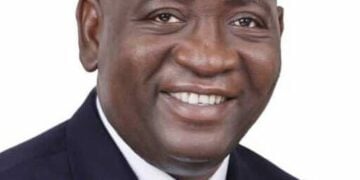The Leader of the Senate, Senator Opeyemi Bamidele, has assured Nigerians that the ongoing amendment of the Electoral Act, 2022, would be concluded on or before December 2025, well ahead of the 2027 general elections.
Bamidele, who represents Ekiti Central Senatorial District, made this disclosure in a statement following President Bola Tinubu’s formal request for the Senate to confirm Professor Joash Amupitan (SAN) as the new Chairman of the Independent National Electoral Commission (INEC).
President Tinubu’s nomination of Prof. Amupitan— a Professor of Law— followed the unanimous approval of the National Council of State last Wednesday, after the tenure of former INEC Chairman, Prof. Mahmood Yakubu, ended.
In his remarks, Bamidele noted that the National Assembly was committed to ensuring that the amended Electoral Act will not be passed too close to the next general election, thereby avoiding the pitfalls of 2022.
“Between now and December 2025, we will ensure that the amendment of the Electoral Act is concluded so that it will not be too close to the 2027 elections,” Bamidele said.
He attributed the last administration’s failure to complete the amendment process to the late transmission of the final version of the Electoral Bill to then-President Muhammadu Buhari.
“The previous administration did not sign the last aspect of the Electoral Act in 2022 because it was transmitted to the Presidency late. President Buhari felt it was too close to the election and didn’t want to be misunderstood,” he added.
Bamidele assured Nigerians that the current amendment would address all identified gaps, including the disenfranchisement of statutory delegates, and reflect the evolving realities of Nigeria’s democratic journey.
Senator Bamidele, who also serves as the Vice Chairman of the Senate Committee on Constitution Review, expressed confidence that the ongoing review of the 1999 Constitution (as amended) would scale through.
He noted that key stakeholders—including the Nigerian Governors’ Forum and the Conference of Speakers of State Legislatures—were being constructively engaged to ensure a credible and people-focused constitutional amendment process.
“I do not envisage any resistance from the presidency. Public institutions are working hand-in-hand with the National Assembly for the successful review of the 1999 Constitution,” Bamidele affirmed.
He also hinted that global best practices would be adopted, especially in areas relating to the domestication of international treaties and agreements.
On growing criticism from opposition parties, Bamidele described it as expected and political.
“No matter how well a government performs, the opposition will never admit it. They are focused on reclaiming power, and part of their strategy is to wish for constant friction between the executive and legislature,” he said.
However, he reiterated the ruling party and the National Assembly’s commitment to rebuilding Nigeria, stabilising the polity, and growing the economy.
Looking ahead to the third legislative year of the 10th National Assembly, Bamidele stated that the Senate has a packed agenda that includes “Amendment of the 2022 Electoral Act, Review of the 1999 Constitution, Domestication of key international conventions, Implementation of economic reforms.”





